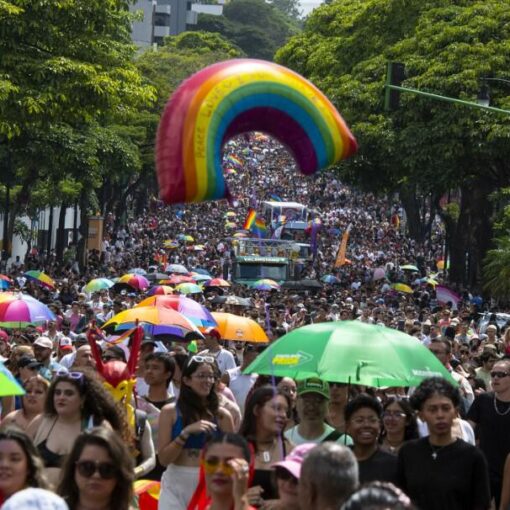The treacherous Darien Gap, a dense and lawless jungle straddling the border between Colombia and Panama, has become a perilous passage for hundreds of thousands of migrants seeking a better life in the United States. Despite the immense challenges and dangers faced by these individuals, Human Rights Watch (HRW) has accused both Colombia and Panama of failing to provide adequate protection and support for the migrants who brave this arduous journey.
In 2022, a staggering 520,000 people traversed the Darien Gap, facing numerous hazards along the way, including treacherous river crossings, wild animals, and violent criminal gangs that prey on the vulnerable migrants through extortion, kidnapping, and abuse.
Juanita Goebertus, HRW’s Americas director, emphasized that regardless of their reasons for undertaking this journey, migrants and asylum seekers are entitled to basic safety and respect for their human rights throughout their passage.
HRW’s comprehensive 110-page report sheds light on the shortcomings of both Colombian and Panamanian authorities in addressing the needs of migrants and ensuring their rights are protected. The report highlights Colombia’s lack of a clear strategy to safeguard those crossing the gap, with limited government presence leaving migrants exposed to the Gulf Clan, a notorious drug trafficking cartel that has become a major player in the migrant business.
On the other hand, Panama’s focus appears to be more on restricting movement and expediting the transit of migrants to Costa Rica rather than addressing their needs or guaranteeing their right to seek asylum.
The report also brings attention to the alarming prevalence of sexual violence in the Darien Gap, with more than 1,500 reported cases since 2021. However, HRW suggests that the actual number of incidents is likely to be much higher. The NGO criticizes the authorities on both sides of the border for not doing enough to investigate and punish these violations or to search for missing individuals.
It is estimated that dozens, if not hundreds, of people have lost their lives attempting to cross the Darien Gap or are currently missing in the region.
Furthermore, HRW finds the efforts to ensure access to basic necessities such as food, water, and essential healthcare services to be “inadequate.” The dire situation in the Darien Gap has also drawn criticism from medical charity Doctors Without Borders (MSF), which recently highlighted a sharp rise in sexual violence against migrants and accused Panama of not doing enough to protect them.
MSF reported that an average of 16 women were raped daily in February alone. In response, the Panamanian government suspended MSF’s humanitarian work in the region and accused the organization of failing to share data on the alleged victims. The government also blamed international aid groups for encouraging illegal migration by providing maps to help migrants navigate the treacherous jungle.
Goebertus emphasized that Colombia and Panama should not be left alone to tackle the immense challenges posed by the Darien Gap and urged foreign governments to support efforts to protect the migrants. The international community must recognize the gravity of the situation and provide the necessary resources and assistance to ensure the safety and well-being of those who risk their lives in pursuit of a better future.
The plight of the migrants crossing the Darien Gap is a stark reminder of the urgent need for a comprehensive and coordinated approach to address the root causes of migration, protect the rights of those forced to flee their homes, and provide them with the support they need to rebuild their lives.
It is imperative that the international community comes together to find humane and sustainable solutions to this ongoing crisis, ensuring that no one is left behind in their quest for safety and dignity.
Source link
Tico Times



